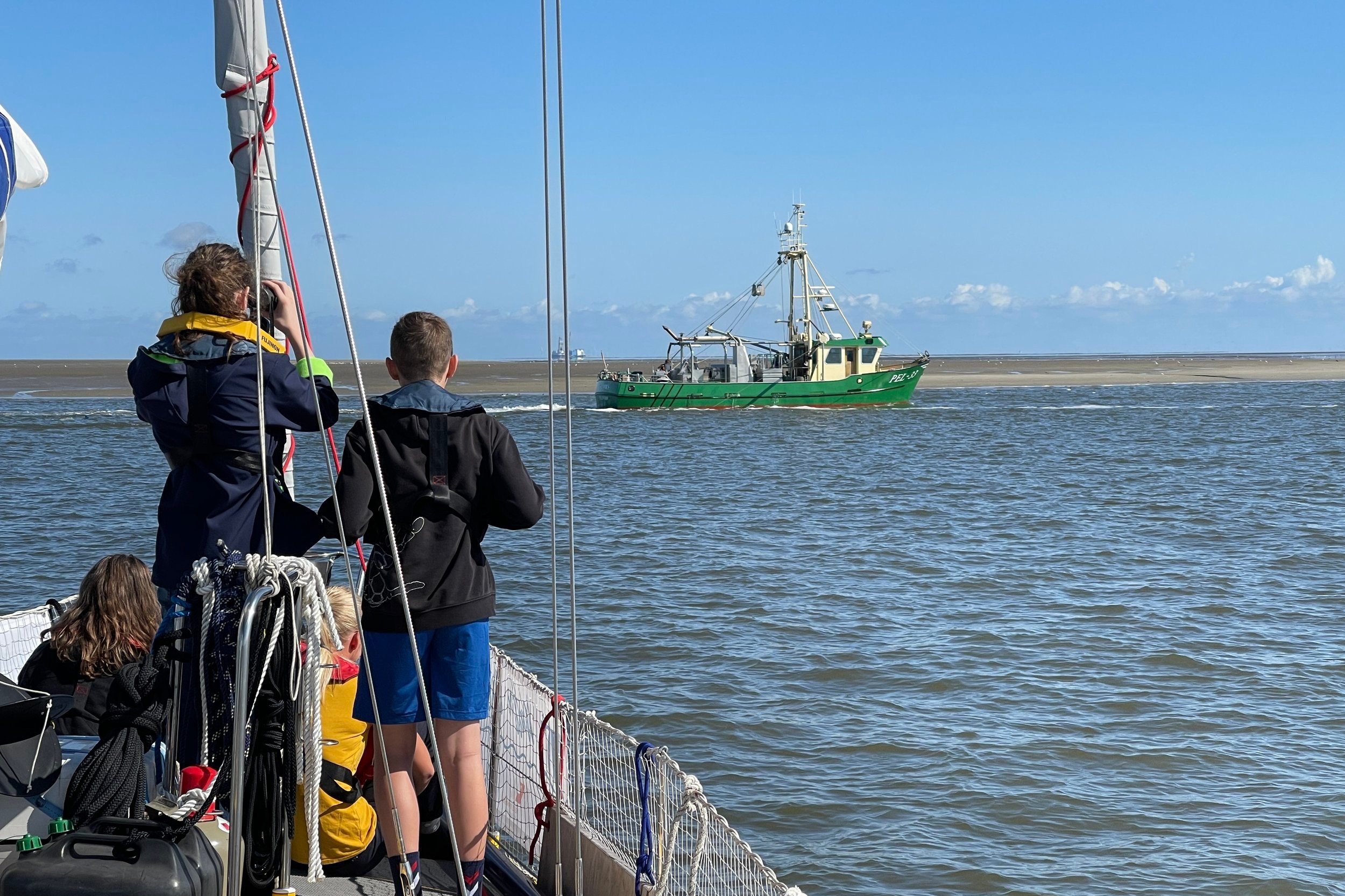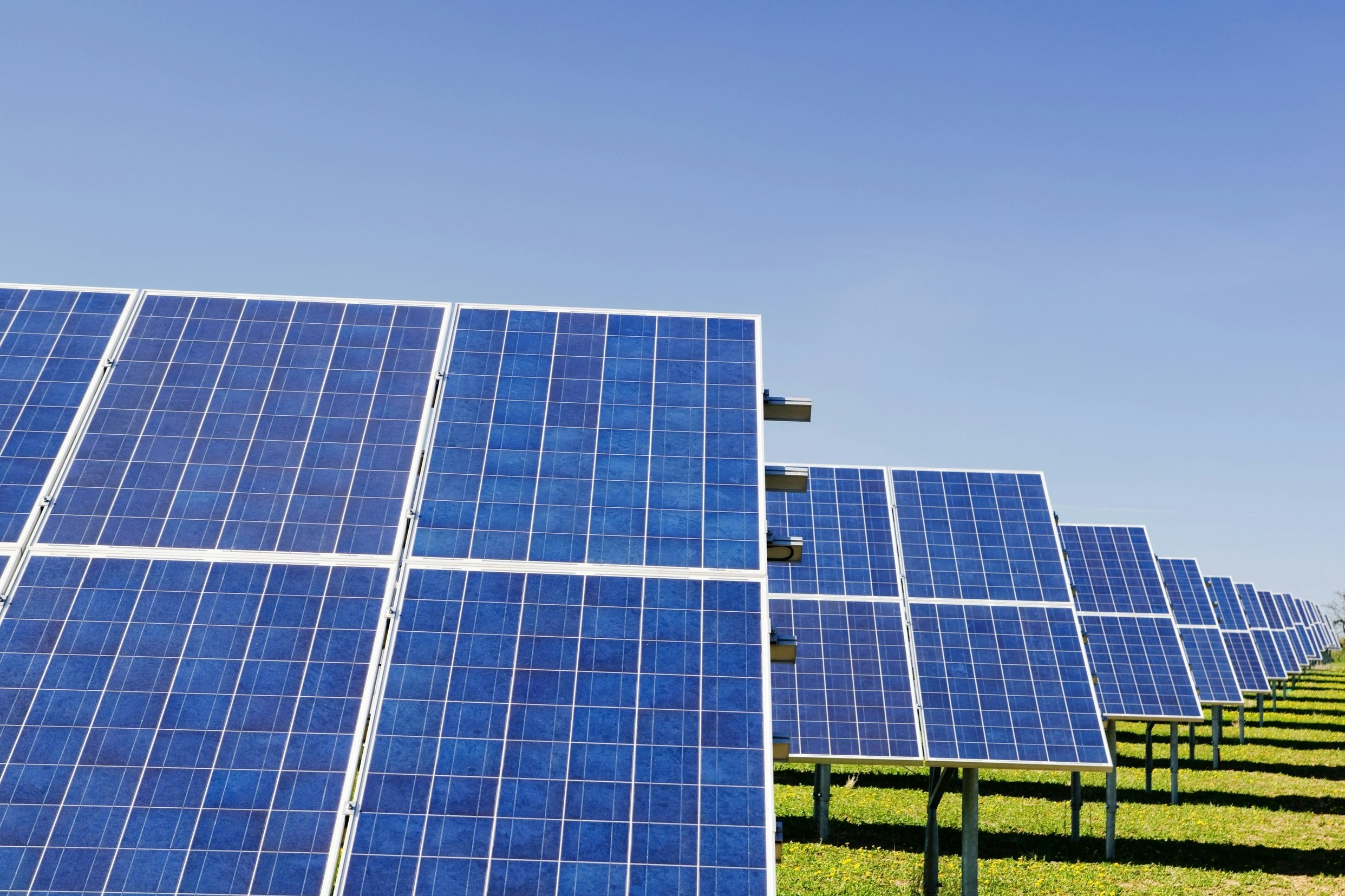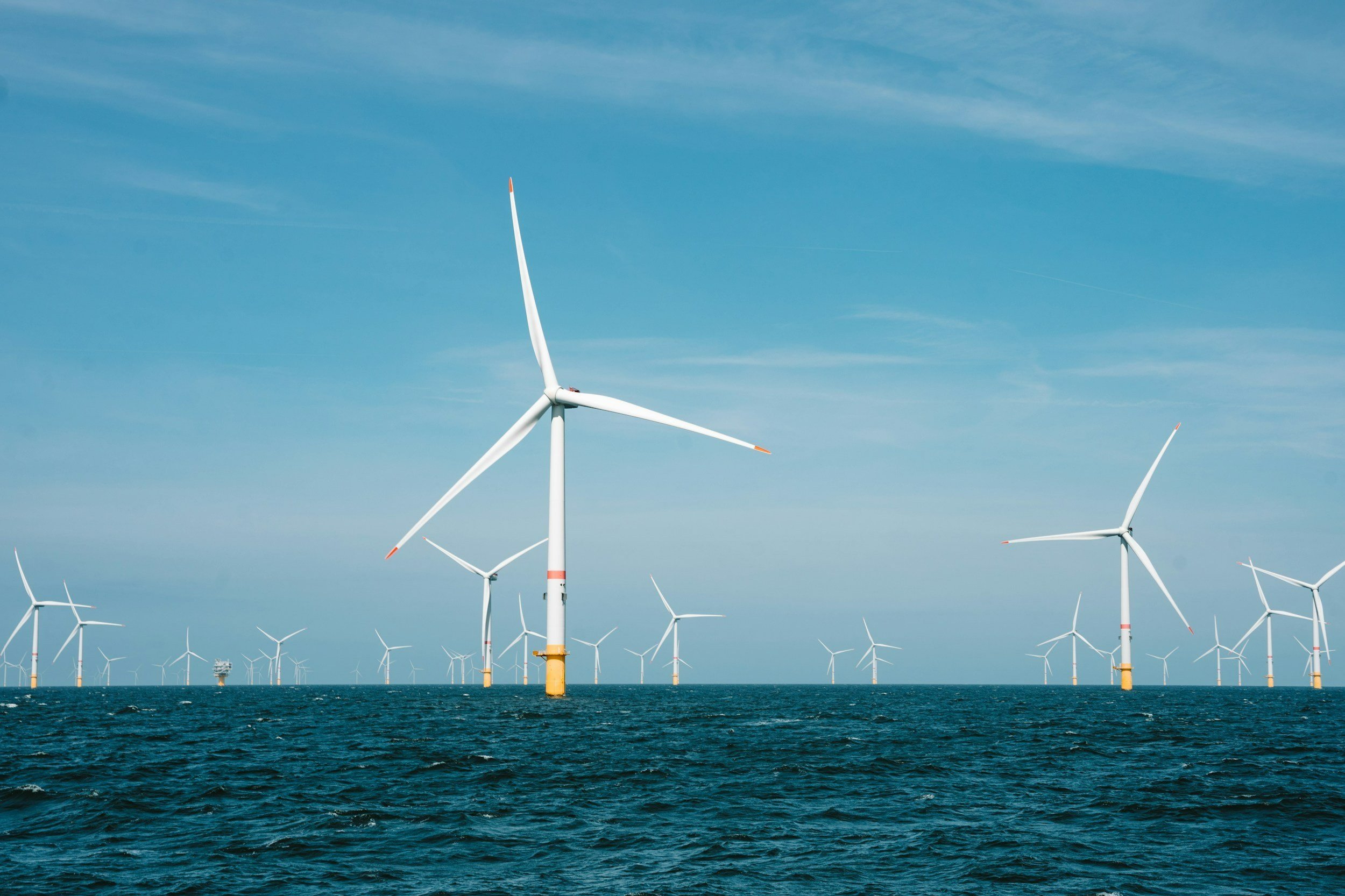
Positions
Commitment to the ocean and the development of marine policy must be based on scientific findings. Where possible, the German Ocean Foundation will take concrete positions on important marine issues and publish these in the form of political briefings here on the website.
As this work requires a great deal of experience and expertise, these briefings are mainly developed with other partners from Germany, Europe and around the world. For example, the German Ocean Foundation is also part of many national, European and international initiatives such as the German Nature Conservation Ring (DNR), Rise Up For The Ocean, High Seas Alliance and the Ocean and Climate Platform.
Here are our topics and we are grateful for further suggestions and positions, which you are welcome to send us by e-mail: policy@meeresstiftung.de.
-

Renewable energy
Renewable energies are currently the most effective measure for marine protection and are crucial for the transition to a climate-neutral future, as they replace fossil fuels and reduce CO₂ emissions. Solar energy and solar thermal energy in particular have enormous potential to supply large amounts of clean electricity, even in our latitudes. The expansion of such technologies helps to achieve climate targets and create jobs in the green economy at the same time. In addition, the use of renewable energies reduces dependence on imported fossil fuels, which strengthens energy self-sufficiency, security of supply and peace in the world. By protecting and integrating marine ecosystems into these projects, renewable energies can also be reconciled with the preservation of biodiversity. Regardless of politics, every citizen can take immediate action for their own benefit.
-

Deep-sea mining
Deep-sea mining would have the potential to provide important raw materials such as rare earths and metals, but its implementation is currently not responsible. The hitherto largely unknown ocean and the serious damage that would be caused by deep-sea mining cannot be justified if our societies are unable to guarantee a 100% recycling rate for these important materials, which are essential for green technologies and electronics. Only a 100 percent recycling rate and an ecologically and socially compatible extraction of these materials on land are currently the necessary solution instead of these materials ending up in large quantities in waste incineration plants and still in landfills. The research and development we have seen so far in this area, with its serious impact on marine biodiversity in particular, currently leaves no room for approval of this technology, even if poor island states argue in favor of it with arguments bought by the relevant corporations.
-

Biodiversity
The protection of marine biodiversity is not only of central importance for the ecological balance, but also for the basis of human life. Marine animals and plants play an important role in regulating the climate and are essential for the production of oxygen and the absorption of CO₂. The loss of biodiversity jeopardizes many economic sectors that depend on healthy marine ecosystems, such as fisheries and tourism. Protected areas and international programs such as the UN Decade on Ecosystem Restoration could halt the loss of biodiversity and promote the regeneration of marine habitats. Sustainable use of the ocean thus ensures not only its beauty, but also its essential function for the global ecosystem and, not least, the survival of humankind on our planet.
-

Offshore wind energy
Offshore wind energy is an important technology for the energy transition as it supplies large amounts of clean electricity with minimal land use. Wind farms at sea can operate particularly efficiently, as wind speeds are higher and more constant here than on land. Modern technologies enable the construction of wind farms that coexist with marine ecosystems and minimize the impact on flora and fauna. In addition, the foundations of offshore wind turbines can provide valuable refuge areas for ecosystems that would normally be destroyed by fishing. For marine mammals, the construction of these turbines and the recycling of the rotor blades, which are made of composite materials, and the operating life of the turbines are still unresolved. Both offshore and onshore wind projects create jobs in the construction, technology and maintenance sectors and strengthen the blue economy.
-

Carbon capture and storage (CCS) injection in the ocean
The injection of CO₂ into the ocean through Carbon Capture and Storage (CCS) is still being promoted by the fossil fuel industry as the favored solution for the huge amounts of CO₂, even though it is known that this solution is far too expensive and unsustainable compared to other renewable energies. Considering that most of the ocean is still unknown to us, the consideration of this technology seems completely irresponsible and out of date. The effects that this technology could have on the ocean, even in the long term, have hardly been researched and could lead to incalculably greater problems than we could ever estimate today. Therefore, this technology is by no means the transitional solution propagated by the fossil fuel lobbyists.
-

Baltic Sea National Park
The Baltic Sea National Park is an outdated example of an attempt to protect sensitive marine ecosystems in a region under high ecological and economic pressure. The real solution to protecting the Baltic Sea lies in first massively reducing or completely stopping the input of fertilizer from industrial agriculture and, for example, actually implementing the fishing quotas set by science. Only with these two measures, for example, can habitats for numerous endangered species be protected and overfished fish stocks recover. From our point of view, instead of rigorous bans, sustainable coexistence and cooperation between humans, nature and the ocean would be the goal without excluding anyone. An essential element of this is sustainable tourism, which strengthens the regional economy and raises awareness for the protection of the oceans. Through the targeted promotion of education and research projects and the massive increase in marine awareness, protected areas contribute to the development of innovative approaches to marine conservation. Such protected areas are essential for a sustainable balance between the use and conservation of the oceans.
-

Ocean literacy
Awareness of the importance of the ocean is a fundamental prerequisite for its protection and sustainable use. Many people are unaware of how much they depend directly or indirectly on the ocean - be it for food, oxygen or climate regulation. Campaigns and educational programmes that promote knowledge about the ocean and the impact of human activities on it can bring about decisive change. Greater ocean awareness motivates individuals and societies to take an active role in protecting the ocean. This creates a broad basis for the implementation of global and regional marine protection measures.
-

Blue Economy
The blue economy combines economic growth with the protection of marine resources and is a key approach to sustainable development. With two-thirds of the Earth's surface covered by the ocean, industries such as sustainable aquaculture, tourism and renewable energy are likely to have the greatest potential to create jobs in the future without irreversibly damaging the environment. They rely on innovations and technologies that promote resource efficiency and environmental protection instead of maximizing short-term profits. Through international cooperation and clear guidelines, the Blue Economy can help preserve marine ecosystems while promoting global prosperity. It shows that economic success and environmental protection can go hand in hand - allowing countries in the Global South in particular to participate fully and fairly in this new development.
-

Marine Strategy Framework Directive (MSFD)
The EU's Marine Strategy Framework Directive (MSFD) is an important political approach to protecting and sustainably using the marine environment. It obliges member states to take measures to achieve a "good environmental status" in all European seas by 2027. The directive provides a clear framework to counteract environmental pressures such as overfishing, pollution and habitat destruction. At the same time, it promotes scientific research to better understand the impact of human activities on the ocean. The MSFD lays the foundation for the long-term protection of European marine areas, the goals of which have been postponed again and again after repeated failures to achieve them. We urgently call for these rules to be continued and for compliance measures to be significantly strengthened.
-

UN Decade on Ecosystem Restoration
The UN Decade on Ecosystem Restoration (2021-2030) places a global focus on restoring degraded habitats, including marine ecosystems. The initiative emphasizes the importance of a healthy ocean for global climate regulation, biodiversity conservation and food security. Through international cooperation and innovative projects, damaged coral reefs, seagrass beds and mangroves are to be restored. These measures not only help the environment, but also the coastal communities that depend directly on marine resources. The Decade is an urgent call to action to provide future generations with intact ecosystems.
-

Zero pollution and the circular economy
Zero pollution and the circular economy are indispensable concepts for protecting the oceas from the effects of human activities. Plastic waste, chemicals and other pollutants threaten biodiversity and the health of marine ecosystems. Through innovative technologies that reduce and recycle waste, we must promote the transition to a circular economy globally. A pollution-free marine environment not only improves the quality of life for marine organisms, but also ensures the survival of people on our planet.
-

Transformation of subsidies
The transformation of environmentally harmful subsidies is essential in order to immediately stop environmentally harmful practices in marine use and promote existing sustainable alternatives. Currently, considerable amounts of money are still flowing into supporting overfishing, fossil fuels or environmentally harmful tourism. By redistributing subsidies towards sustainable technologies and practices, the transition to a blue economy can be accelerated and many new jobs created. This transformation would not only strengthen the protection of the ocean, but also promote innovative economic sectors that are more stable in the long term. It is a key lever for reconciling ecological and economic goals.
-

Permaculture
In addition to climate change, the biggest problem for the ocean, mainly in industrialized countries, is the input of toxins and fertilizers from industrial agriculture. The solution to this would be an immediate switch to sustainable agriculture or forms of modern permaculture. Permaculture offers a holistic approach to agriculture that is more sustainable, regenerative and environmentally and ocean friendly compared to industrial agriculture, because it is based on natural cycles and promotes the regeneration of soils that are often depleted by monocultures and chemical fertilizers in industrial agriculture. Healthy soils store more carbon, reduce erosion and increase water holding capacity, making permaculture a viable long-term solution.
Permaculture is adaptable and more resilient to the effects of climate change. Mixed crops and diversified systems are less susceptible to weather extremes and pest infestations than large-scale monocultures.
Permaculture promotes local economic cycles and enables local communities in particular to produce their own food sustainably on a small scale. In combination with local markets, it reduces dependence on global agricultural markets and makes people less dependent on the pricing policies of supermarkets.
